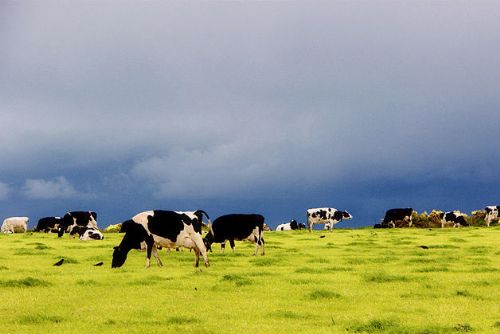
Dairy farmers lost 11p/litre last year and are set to suffer even more following the latest round of milk price cuts, according to rural accountants.
Based on sample accounts obtained from farming clients in the South West, they identified the average cost of production stood at 35.04p/litre in 2011/12, 1.73p more than the previous year.
Without the single payment, the break-even price increased to 37.09p. Many milk prices are now stuck at 26p, a shortfall of 11p.
While many industry calculations exclude owners’ drawings and capital costs, it is essential that dairy farmers take these real costs into account, said Mike Butler, partner in the rural accountants Old Mill.
"Retailers and processors wouldn’t dream of investing in facilities without weighing up the cost of wages and funding, and neither should farmers."
Butler allowed a £25,000 annual wage for each full-time proprietor and factored in a capital cost of 5% on farmland at a market value of £7500/acre.
"We found that for a dairy farm to be sustainable, with the proprietors paid a modest wage and receiving an appropriate return on capital to reinvest in the business, the current milk price should be 37p/litre. That may sound unrealistic, but when the Milk Marketing Board was deregulated in 1994, milk prices averaged 20p/litre. Based on Retail Price Index inflation, today’s price should be 39p/litre."
It is clear that while costs have moved with, and even ahead of, inflation, milk prices have fallen back, says Mr Butler. "Without doubt the retailers are undermining the stability of the dairy sector, slashing their prices and passing those reductions down to producers."
Supply and demand have a strong influence on milk prices. Spring’s production has allowed retailers to exercise their buying power.
"Without fairer contracts the only way farmers will see prices increase is through a tightening of supply. This may be through collaboration to restrict milk output, or, more likely, from the undoubted wave of farmers exiting the industry as a result of these price drops."
Unless something changes soon the UK will become reliant on imported dairy products, he warned.
"That is not in the best interests of farmers, processors, retailers, or the general public. Everyone in the industry needs to redouble their efforts to express the true position of the market, based on real and defendable figures. Old Mill is happy to engage with any dairy farming group to help get that message across and bring milk prices back up to sustainable levels. If we don’t there will be no dairy farmers left and ultimately everyone will suffer."
